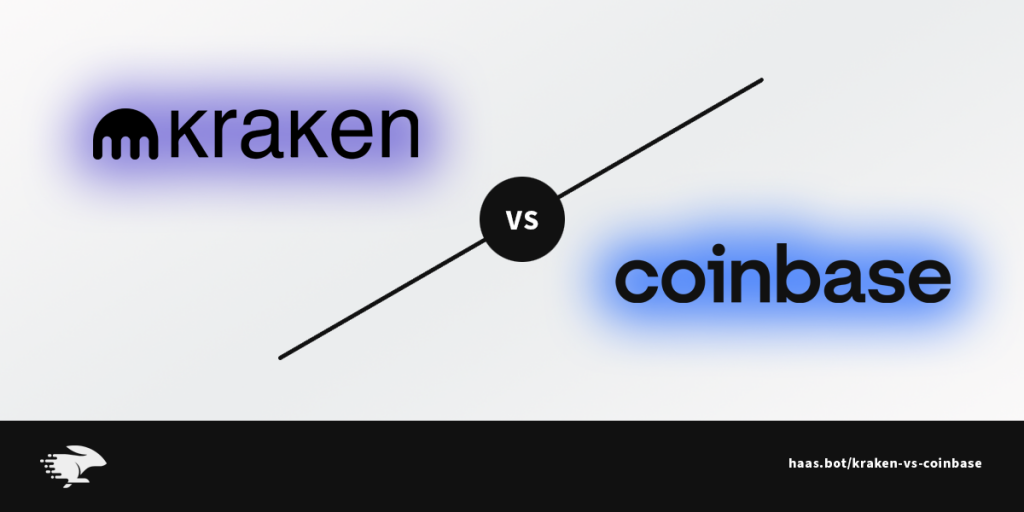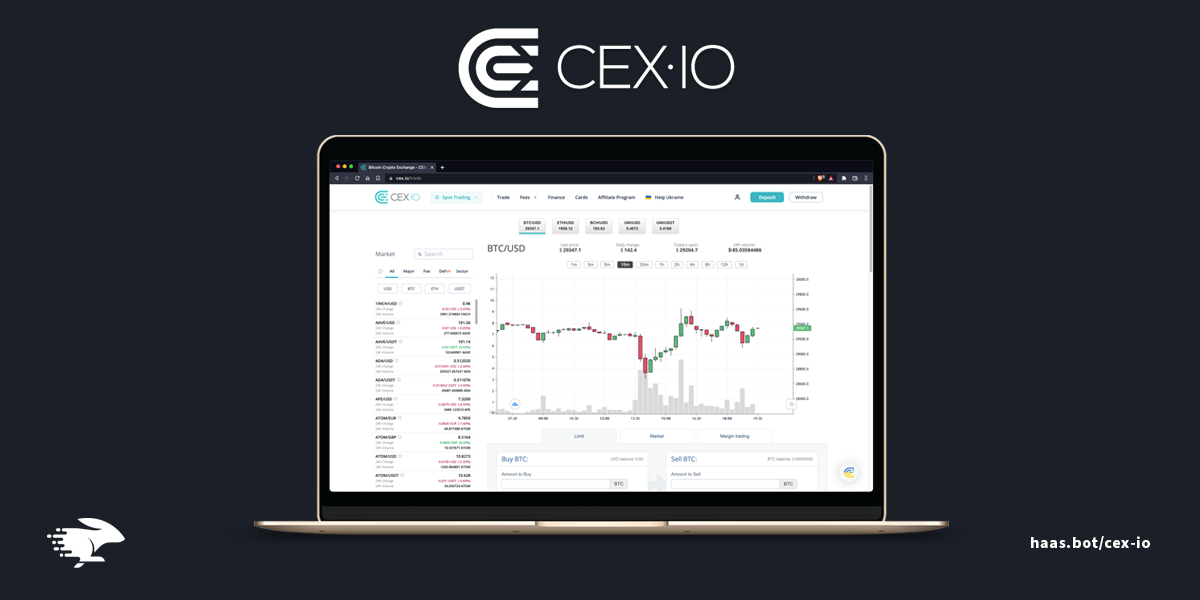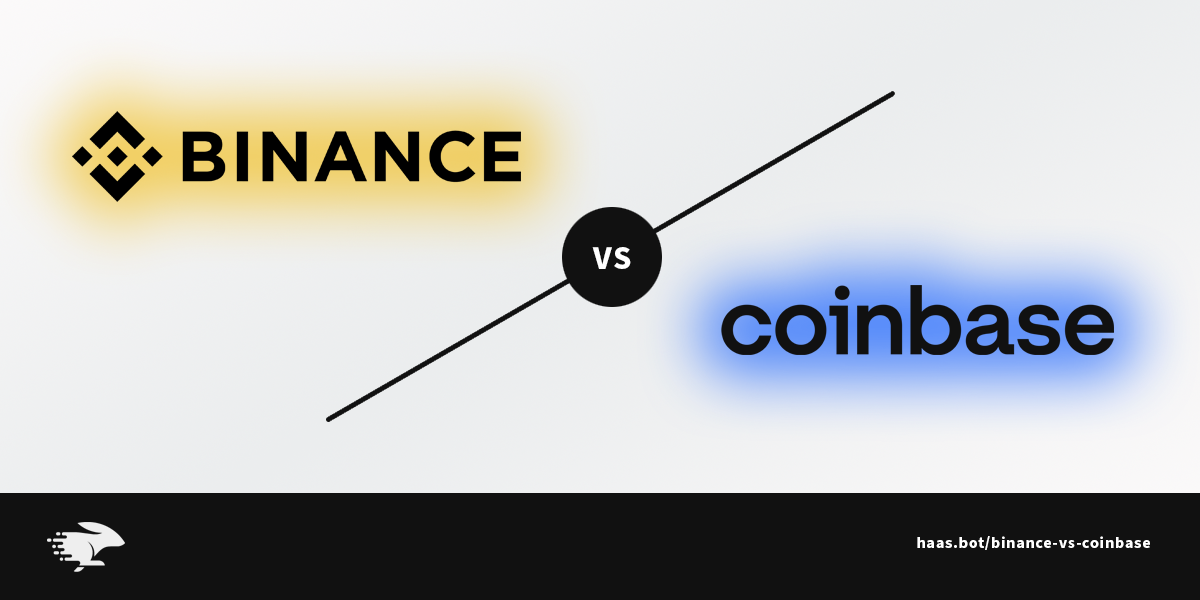
It’s hard to believe that it’s been more than a decade since the crypto revolution announced itself with the landing of Bitcoin in 2009. At this point, it’s safe to say that the economy has a better chance of going back to the Stone Age than the Analog Age.
With the demand for digital currencies rising with every passing day, swallowing and merging with fiat currencies along the way, the number of trading platforms has reached unprecedented heights, making the notion of what a cryptocurrency exchange is and should be all but impossible to define.
Nevertheless, it’s no coincidence that both Kraken and Coinbase have risen from uncertain waters to the very top of the crypto Olympus.
In this Kraken VS Coinbase comparison guide, we’re taking a closer look into what binds them together and what sets them apart in features, support, fees, security, reliability, and of course, supported cryptocurrencies.
About the Exchanges
Kraken
Jesse Powell founded Kraken in 2013 with the focal point on safety and accessibility.
With low trading fees of 0.26% and full fiat bank deposit support, Kraken provides trading in over 20 crypto and 5 fiat currencies. When it comes to security, they run a tight shop employing Global Settings Lock and a two-factor authentication process. The platform also has a 24/7 support team, should you be in need of any assistance.
Where Kraken falls a bit short is the speed department. It may take up to a workweek in order for your fiat deposit to show up in your balance preferences. The platform isn’t very mobile and it will take some time and skill before you can get comfortable with it.
Coinbase
Launched in 2012 by Brian Armstrong and Fred Ehrsam, Coinbase’s mobile and intuitive platform is better suited for novice users. Coinbase allows them to execute trades and exchange crypto within the hour of registering on the platform.
The exchange administers two-factor authentication on withdrawals and supports fiat bank deposits. Should you encounter a problem, simply refer to their support team that’s standing by at all times. However, compared to Kraken, Conbase does administer higher fees and offers a more limited selection of cryptocurrencies.
Supported Cryptocurrencies
Coinbase deals in four cryptocurrencies, namely Ethereum (ETH), Bitcoin (BTC), Bitcoin Cash (BCH), and Litecoin (LTC). Also, if you get their Coinbase Earn expansion, you will have a guide along the way, as the platform provides courses and simplified platform models.
Well, Kraken has the upper hand when it comes to cryptocurrency selection, as it deals in 20 different cryptocurrencies including BTC, BCH, ETH, LTC, Ethereum Classic (ETC), Ripple (XRP), Cardano (ADA), Monero (XMR), Gnosis (GNO), Zcash (ZEC), DOGE, Tether (USDT), etc.
The trading pair selection is even more impressive, as Kraken supports more than 400 trading pairs. Payments are available in 5 fiat currencies: Japanese Yen (JPY), Euros (EUR), US Dollars (USD), Pound Sterlings (GBP), and Canadian Dollars (CAD). The deposits are made via credit card and wire bank transfers.
Trading Fees & Features
Kraken has a very different fee system based on the user’s activity in a span of 30 days. For volumes lower than $50,000 on a monthly basis, the platform employs a taker fee of 0.26% and a maker fee of 0.16%. Should you go beyond $50,000, fees drop to 0.24% for takers and 0.14% for makers. There are further discounts if you deal in outrageously high volumes. All fees are applied per trade.
Coinbase, on the other hand, employs both fixed and variable fees. It all depends on the volume of the transactions and the methods thereof. Usually, smaller transactions are subject to fixed fees and remain unaltered whether you choose debit card or credit card transfers, bank account transfers or if the payment is made from a crypto wallet.
Security
You can’t go wrong with either Coinbase or Kraken when it comes to security, as both platforms store the majority of funds offline, in cold storage, and provide enhanced security measures such as 2FA and withdrawal address whitelist.
However, even though all offline digital currencies on Coinbase are insured, they will not be held responsible if there is a breach on your end, as they deem that as your responsibility. In the US, wallet insurance is provided by the FDIC (Federal Deposit Insurance Corporation). They cover losses up to $250,000.
Kraken has a feature called Global Settings Lock that essentially filters and blocks IP addresses that haven’t been previously associated with your account. Hey, it seems like it’s working out for them, as the platform hasn’t been infiltrated in eight years and counting.
Ease of Use
The platforms differ significantly when it comes to ease of use. Coinbase’s focal point upon creation has been to pertain to new inexperienced users and make their trading experience as simple and unalienating as possible. Literally anyone can set up an account and be off to the races; dealing in bitcoins and altcoins, adding deposits, or withdrawing funds within minutes.
Kraken, however, has a learning curve before you can get the hang of it and know what and where you are doing or should be doing. Needless to say, this comes at options for margin trading, customizable features, detailed overviews, stop/loss orders, etc.
Before you begin, you will be asked to verify your account and connect your profile to a bank account in order to deposit fiat currencies which can be and is a bit time-consuming.
Customer Support
Kraken employs a 24/7 live global chat support as their primary support option, which came as a result of the stacking number of complaints on problems regarding account verification.
Who said that strength in numbers is just a phrase?
Coinbase’s main support is being administered through their live chat or via telephone. However, due to high traffic, users are forced to rely on email and FAQ support, reporting long and prolonged response times, sometimes up to a full work week.
Mobile Trading
Coinbase provides a stable free global mobile app across all platforms. With it, you’re just a tap away from all your crypto endeavors. So far, users have been very satisfied with its features and reliability.
The same can’t be said of Kraken, as they’ve had some problems when it comes to the mobility of their platform and their iOS app is no longer available through the iOS App Store.
Coinbase VS Kraken – The Verdict
Both platforms provide fiat-to-crypto exchanging and are long-standing giants within the cryptoverse for a reason. It doesn’t come down to choosing the right from the wrong one. Rather, the more suitable one.
So, if you happen to be new to this game, you should probably lean toward Coinbase. The speeds are lightning-fast even though you will need to part with a bit more in fees.
However, if you have been around the block a couple of times and you want more control, surgical cuts, a wider palette to paint with, and lower fees, then Kraken could be a more suitable choice. Of course, provided a bit of transaction waiting doesn’t murk up your plans. Slow and steady wins the race. Right?




